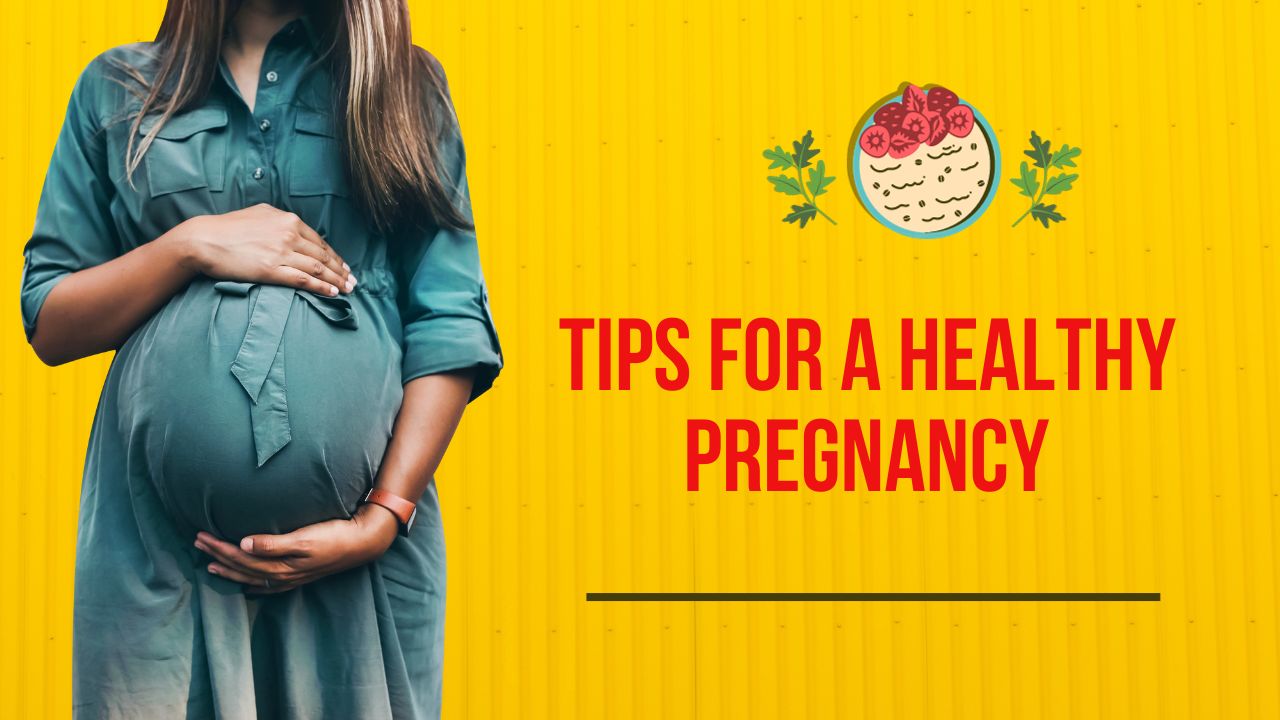Healthy Lifestyle and Nutrition Tips for a Healthy Pregnancy
we provide essential lifestyle and food recommendations for a healthy and balanced pregnancy journey. Discover the key factors that contribute to the well-being of both the mother and the developing baby. Learn about the importance of maintaining a healthy lifestyle, including regular exercise, stress management, and adequate rest. We also discuss the vital role of nutrition during pregnancy and offer guidance on essential nutrients, recommended food groups, and healthy eating habits for optimal maternal and fetal health. Watch this video to gain valuable insights and make informed choices for a vibrant and nourishing pregnancy experience.

Here are the recommended food groups and their importance during pregnancy
- Fruits and Vegetables: Aim to include a colorful assortment of fruits and vegetables in your diet. They provide essential vitamins, minerals, and fiber. Opt for a variety of options like leafy greens, citrus fruits, berries, tomatoes, carrots, and sweet potatoes.
- Whole Grains: Choose whole grains over refined grains for their higher fiber content and nutritional value. Incorporate foods like whole wheat bread, brown rice, oats, quinoa, and whole grain pasta. These provide energy, fiber, and important nutrients like iron and B vitamins.
- Protein: Include adequate protein sources in your diet to support the growth and development of the baby. Good sources of protein include lean meats, poultry, fish, eggs, legumes (beans, lentils, chickpeas), tofu, nuts, and seeds.
- Dairy Products: Dairy products are rich in calcium, which is important for the development of the baby's bones and teeth. Choose low-fat or fat-free options like milk, yogurt, and cheese. If you are lactose intolerant or have dietary restrictions, consider alternative sources of calcium such as fortified plant-based milks and calcium-rich foods like leafy greens and tofu.
- Healthy Fats: Include sources of healthy fats in your diet, such as avocados, nuts, seeds, and fatty fish (like salmon or sardines). These provide omega-3 fatty acids, which are crucial for the baby's brain and eye development.
- Iron-Rich Foods: Iron is needed for the production of red blood cells and to prevent anemia. Include iron-rich foods like lean red meat, poultry, fish, fortified cereals, spinach, lentils, and dried fruits in your diet. Consuming vitamin C-rich foods (such as citrus fruits, tomatoes, and berries) alongside iron-rich foods can enhance iron absorption.
- Hydration: Stay well-hydrated by drinking plenty of water throughout the day. Aim for about 8-10 cups of fluids daily, adjusting based on individual needs and as advised by your healthcare provider.
Remember, it's important to consult with your healthcare provider or a registered dietitian for personalized dietary recommendations during pregnancy, as individual needs may vary.
Pregnancy nutrition, healthy lifestyle, prenatal health, pregnancy diet, exercise during pregnancy, stress management, rest and relaxation, essential nutrients, healthy eating habits, maternal health, fetal development,superfood.

You must be logged in to post a comment.